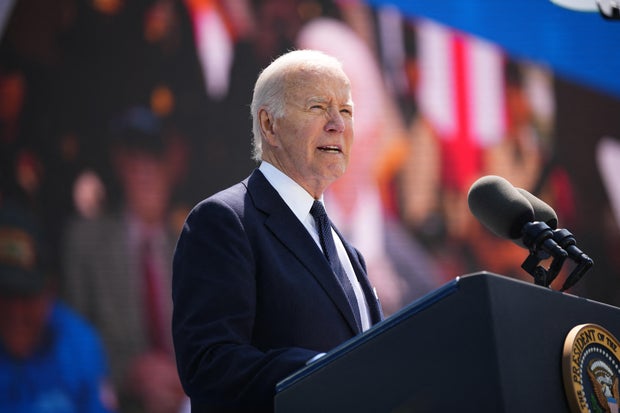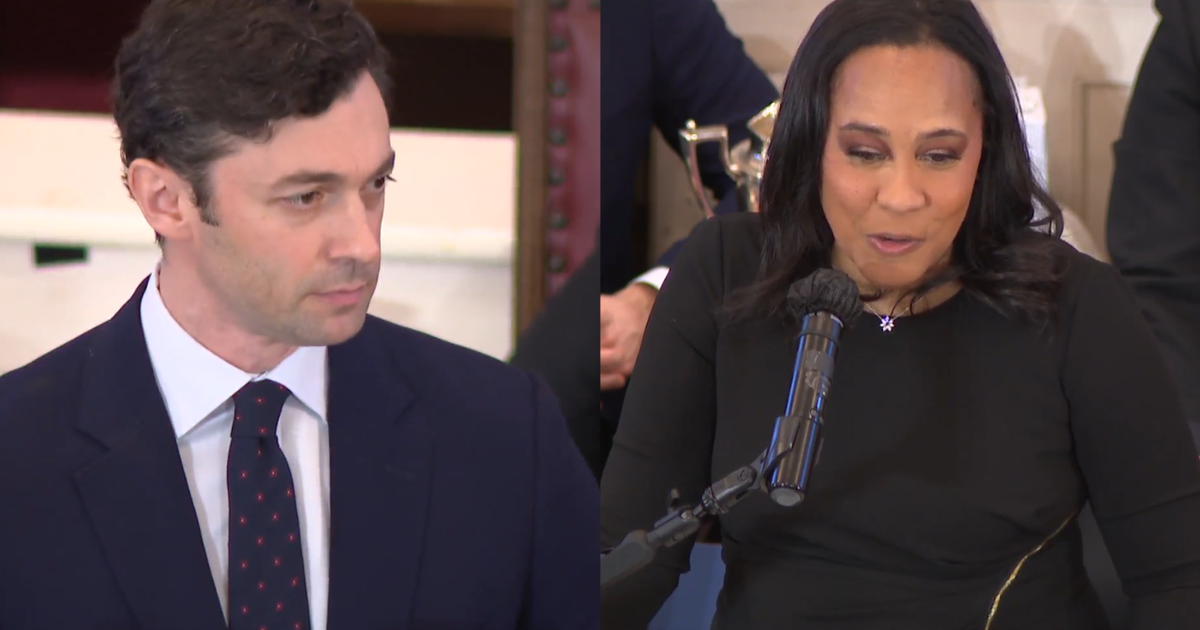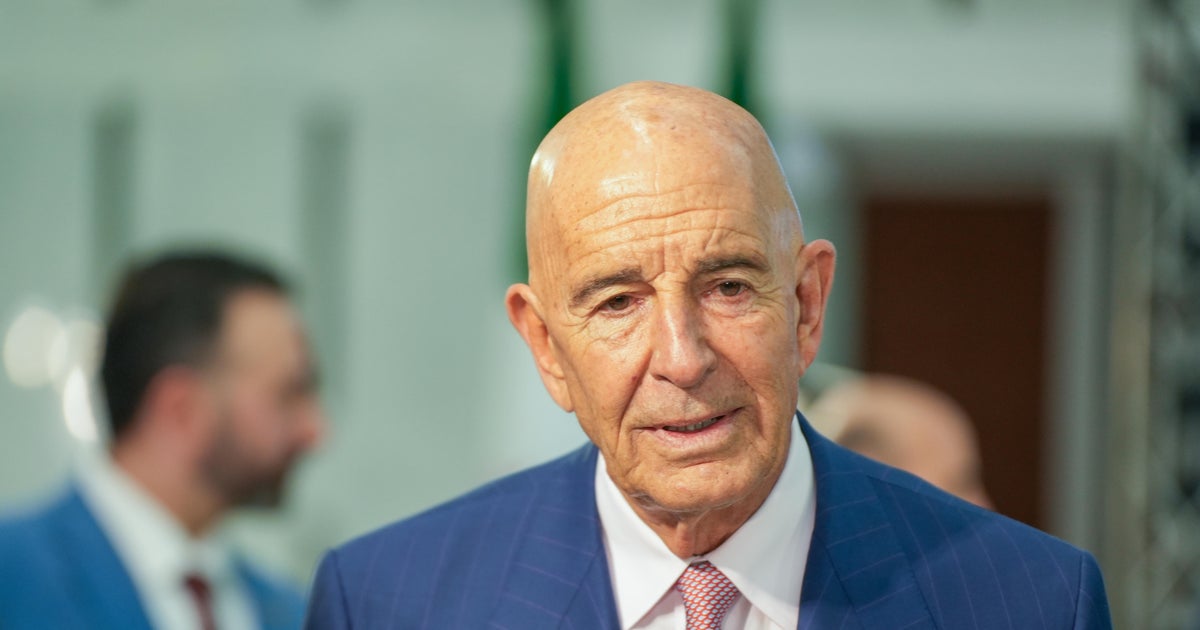Biden warns about "price of unchecked tyranny" as he vows to continue to help Ukraine
President Biden on Thursday warned of the present threat to democracy in Europe and beyond as he marked 80 years since the American-led invasion of Nazi-occupied France on D-Day, saying in Normandy that "the struggle between a dictatorship and freedom is unending" while pledging that "we will not walk away" from Ukraine.
"The price of unchecked tyranny is the blood of the young and the brave," Mr. Biden said. "In their generation, in their hour of trial, the allied forces of D-Day did their duty. Now the question for us is, in our hour of trial, will we do ours?"
Speaking from a ceremony to mark the 80th anniversary of the invasion of Nazi-occupied France by U.S.-led allied forces on D-Day, the president drew a parallel between the alliance eight decades ago and the NATO alliance today, saying D-Day was "a powerful illustration" of how alliances "make us stronger," and noting that it's a lesson that "I pray we Americans never forget."
"Isolationism was not the answer 80 years ago and is not the answer today," Mr. Biden said.
During the address, where he paid homage to the living veterans and those who lost their lives during World War II, the president warned that the "dark forces" that were present 80 years ago "never fade," and he tied the lessons of history to the continued threats posed today as Ukraine fights off the Russian-led invasion. "Here in Europe we see one stark example: Ukraine has been invaded by a tyrant bent on domination," Mr. Biden said. "Ukrainians are fighting with extraordinary courage, suffering great losses, but never backing down."
But the president made clear the U.S. and its allies' support for Ukraine, saying "the United States and NATO and a coalition of more than 50 countries are standing strong with Ukraine."
"We will not walk away," he added. "Because if we do, Ukraine will be subjugated, and it will not end there. Ukraine's neighbors will be threatened, all of Europe will be threatened."
Mr. Biden said "to surrender to bullies, to bow down to dictators, is simply unthinkable," adding that "were we to do that, it means we'd be forgetting what happened here on these hallowed beaches. We will not bow down, we will not forget."
The D-Day operation, which marked the most significant victory of the Western allies in the war, occurred on June 6, 1944 when five naval assault divisions were sent to the beaches of Normany, France.
"We cannot let what happened here be lost in the silence of years to come," Mr. Biden said. "We must remember, the fact that they were heroes here that day does not absolve us from what we have to do today. Democracy is never guaranteed — every generation must preserve it, defend it and fight for it. That's the test of the ages."
Secretary of State Antony Blinken expanded on the president's sentiments, appearing on "CBS Mornings" Thursday. He said that the NATO alliance is stronger and larger than it's ever been, despite some disagreement among Americans about the U.S. stance toward foreign conflicts.
"There was disagreement before World War II as well. And that's not new," Blinken said. "But we're all the stronger in being able to meet those challenges because we have a unique ability to bring other countries together."
Blinken spoke of the concept of "enlightened self interest" after World War II, when the U.S. formed alliances partly out of "altruism" but "mostly because it was in our interest to do it."
"Preventing something bad from happening, that meant that we wouldn't have to deal with something much bigger later," Blinken said. "Getting new allies, new partners — that benefitted us."
Without American involvement, Blinken said there would be "chaos" and "lawlessness."
"And ultimately, the things that we take for granted — the democracy that we take for granted — that would be in jeopardy," he added.








